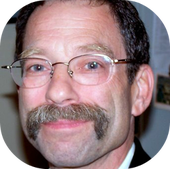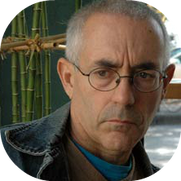Middle East Political Economy Summer Institute Network
SUMMER INSTITUTE PARTICIPANTS
2017 Workshop: Educators
Samer Abboud: Security-Development Nexus

Samer N. Abboud is Associate Professor of International Studies at the Department of Historical and Political Studies, Arcadia University. His areas of focus include Syria, Lebanon, political economy, conflict and reconstruction, and violence. Dr. Abboud is the author of Syria (Polity Press, 2015) and the co-author of Rethinking Hizballah: Authority, Legitimacy, Violence (Ashgate, 2012). He holds a DPhil in Arab and Islamic Studies from the University of Exeter (UK).
Max Ajl: World Systems Theory & Agriculture

Max Ajl is a doctoral student in Development Sociology at Cornell University. He currently is based in Tunis, where he is doing his dissertation research on state agricultural development policy and the politics of price fixing during the era of state-directed development and the transition to capitalist agriculture in the countryside. His fields of expertise include comparative international development, political economy of social change, world-systems theory, Middle East political economy, and rural political economy. His academic writing has been published in many venues, including Historical Materialism, MERIP, and the Journal of Palestine Studies. He has presented at universities in Tunisia and across North America, including at Cornell, Columbia, and the University of California – Berkeley. He co-edits the Palestine page at Jadaliyya and is a contributing editor at Viewpoint Magazine.
Joel Beinin: Labor

Joel Beinin is the Donald J. McLachlan Professor of History and Professor of Middle East History at Stanford University. He received his Ph.D. from the University of Michigan in 1982 before coming to Stanford in 1983. From 2006 to 2008 he served as Director of Middle East Studies and Professor of History at the American University in Cairo. In 2002 he served as president of the Middle East Studies Association of North America.
Beinin’s research and writing focus on the social and cultural history and political economy of modern Egypt, Palestine, and the Arab-Israeli conflict. He has written or edited ten books, including Social Movements, Mobilization, and Contestation in the Middle East and North Africa, 2nd edition (Stanford University Press, 2013), co-edited with Frédéric Vairel and The Struggle for Worker Rights in Egypt (Solidarity Center, 2010). His most recent book, Workers and Thieves: Labor Movements and Popular Uprisings in Tunisia and Egypt, was published by Stanford University Press in 2015.
His articles have been published in leading scholarly journals as well as The Nation, Le Monde Diplomatique, Middle East Report, the Los Angeles Times, the San Francisco Chronicle, the San Jose Mercury News, and the Los Angeles Review of Books. He has been interviewed on Al-Jazeera TV, BBC radio, (US) National Public Radio, and many other TV and radio programs throughout the world as well by the global print media.
Beinin’s research and writing focus on the social and cultural history and political economy of modern Egypt, Palestine, and the Arab-Israeli conflict. He has written or edited ten books, including Social Movements, Mobilization, and Contestation in the Middle East and North Africa, 2nd edition (Stanford University Press, 2013), co-edited with Frédéric Vairel and The Struggle for Worker Rights in Egypt (Solidarity Center, 2010). His most recent book, Workers and Thieves: Labor Movements and Popular Uprisings in Tunisia and Egypt, was published by Stanford University Press in 2015.
His articles have been published in leading scholarly journals as well as The Nation, Le Monde Diplomatique, Middle East Report, the Los Angeles Times, the San Francisco Chronicle, the San Jose Mercury News, and the Los Angeles Review of Books. He has been interviewed on Al-Jazeera TV, BBC radio, (US) National Public Radio, and many other TV and radio programs throughout the world as well by the global print media.
Sandra Halperin: State Formation

Sandra Halperin is Professor of International Relations and Head of the Department of Politics and International Relations, as well as Director of the Centre for Islamic and West Asian Studies at Royal Holloway, University of London. Her main research areas include global development, the historical sociology of global relations, the causes and conditions of war and peace, and Middle East politics. Her research has focused primarily on the nature and shape of global development and its impact on different parts of the world. Its principal concern has been to understand how societies develop through essentially trans-national, cross-regional processes.
She is the author of three cross-regional and trans-historical comparative studies: In the Mirror of the Third World: Capitalist Development in Modern Europe (Cornell UP, 1997), War and Social Change in Modern Europe: the great transformation revisited (Cambridge UP, 2004); and Re-Envisioning Global Development: a ‘horizontal’ perspective (Routledge). She is also co-author (with Oliver Heath) of Political Research: methods and practical skills (Oxford UP, 2012; 2nd edn. 2016), co-editor (with Ronen Palan) of Legacies of Empire (Cambridge University Press, 2015) co-editor (with Gordon Laxer) of Global Civil Society and Its Limits (Palgrave/Macmillan, 2003); and author of articles on globalisation, development theory, historical sociology, nationalism, ethnic conflict, Islam, and democracy in the Middle East. She is currently at work on a study entitled The Middle East in Global Development.
She is the author of three cross-regional and trans-historical comparative studies: In the Mirror of the Third World: Capitalist Development in Modern Europe (Cornell UP, 1997), War and Social Change in Modern Europe: the great transformation revisited (Cambridge UP, 2004); and Re-Envisioning Global Development: a ‘horizontal’ perspective (Routledge). She is also co-author (with Oliver Heath) of Political Research: methods and practical skills (Oxford UP, 2012; 2nd edn. 2016), co-editor (with Ronen Palan) of Legacies of Empire (Cambridge University Press, 2015) co-editor (with Gordon Laxer) of Global Civil Society and Its Limits (Palgrave/Macmillan, 2003); and author of articles on globalisation, development theory, historical sociology, nationalism, ethnic conflict, Islam, and democracy in the Middle East. She is currently at work on a study entitled The Middle East in Global Development.
Sherene Seikaly: Postcolonial Theory

Sherene Seikaly is Associate Professor of History at the University of California, Santa Barbara. Previously she was Assistant Professor of History and Director of the Middle East Studies Center at the American University in Cairo. She is the editor of the Arab Studies Journal, and co-founder and editor of Jadaliyya e-zine. Seikaly's Men of Capital: Scarcity and Economy in Mandate Palestine (Stanford University Press, 2016) explores how Palestinian capitalists and British colonial officials used economy to shape territory, nationalism, the home, and the body.
I am a historian of capitalism, consumption, and development in the modern Middle East. The most enduring concern of my scholarly research has been to explore how individuals, groups, and governments deploy both concepts and material practices to shape economy, the body, the self, and the other. My research on Palestinian businessmen; reformers of the domestic sphere; thinkers and scientists; and British colonial officers and institutions contributes to social, cultural, and intellectual history, political economy, cultural studies, and gender studies.
I am a historian of capitalism, consumption, and development in the modern Middle East. The most enduring concern of my scholarly research has been to explore how individuals, groups, and governments deploy both concepts and material practices to shape economy, the body, the self, and the other. My research on Palestinian businessmen; reformers of the domestic sphere; thinkers and scientists; and British colonial officers and institutions contributes to social, cultural, and intellectual history, political economy, cultural studies, and gender studies.
Robert Vitalis: Imperialism

Robert Vitalis is Professor of Political Science at the University of Pennsylvania. He received his Ph.D. in political science from MIT in 1989. His graduate work included a three-year residence in Cairo where he studied Arabic and researched the political strategies of Egyptian business firms. His first book, When Capitalists Collide: Business Conflict and the End of Empire in Egypt, was published in 1995.
He continued to develop and expand the scope of his interests in historical comparative analysis in his second book, America's Kingdom: Mythmaking on the Saudi Oil Frontier, which was published in October 2006 by Stanford University Press, and named a book of the year in the London Guardian.
Recent honors include fellowships from the Woodrow Wilson International Center (2009), the Rockefeller Foundation (2003), the International Center for Advanced Study, NYU (2002), and the American Council of Learned Societies (2002). He was a MacArthur Award nominee in 1998.
His last book White World Order, Black Power Politics: the Birth of American International Relations (Cornell University Press, 2015), moves away from the Middle East to explore the unwritten history of disciplinary international relations and to recover the African-American internationalist tradition. He was awarded the 2016 Theory Prize from the Center for Advanced International Theory, University of Sussex, for White World Order.
His next book, for Stanford University Press, is titled Oilcraft.
He continued to develop and expand the scope of his interests in historical comparative analysis in his second book, America's Kingdom: Mythmaking on the Saudi Oil Frontier, which was published in October 2006 by Stanford University Press, and named a book of the year in the London Guardian.
Recent honors include fellowships from the Woodrow Wilson International Center (2009), the Rockefeller Foundation (2003), the International Center for Advanced Study, NYU (2002), and the American Council of Learned Societies (2002). He was a MacArthur Award nominee in 1998.
His last book White World Order, Black Power Politics: the Birth of American International Relations (Cornell University Press, 2015), moves away from the Middle East to explore the unwritten history of disciplinary international relations and to recover the African-American internationalist tradition. He was awarded the 2016 Theory Prize from the Center for Advanced International Theory, University of Sussex, for White World Order.
His next book, for Stanford University Press, is titled Oilcraft.


